As a sponsor with Compassion, you’re part of an incredible team surrounding that child, cheering them on and empowering them to overcome poverty. You come alongside their parents, Compassion project tutors, church pastor and wider community.
Each month your donations, faithfully and carefully stewarded by Compassion and our local church partners, make a difference.
For the child or young person you sponsor, they spark hope for a future free from poverty.
Here are nine ways your sponsorship will make a difference in 2024.
1. Education which extends beyond school
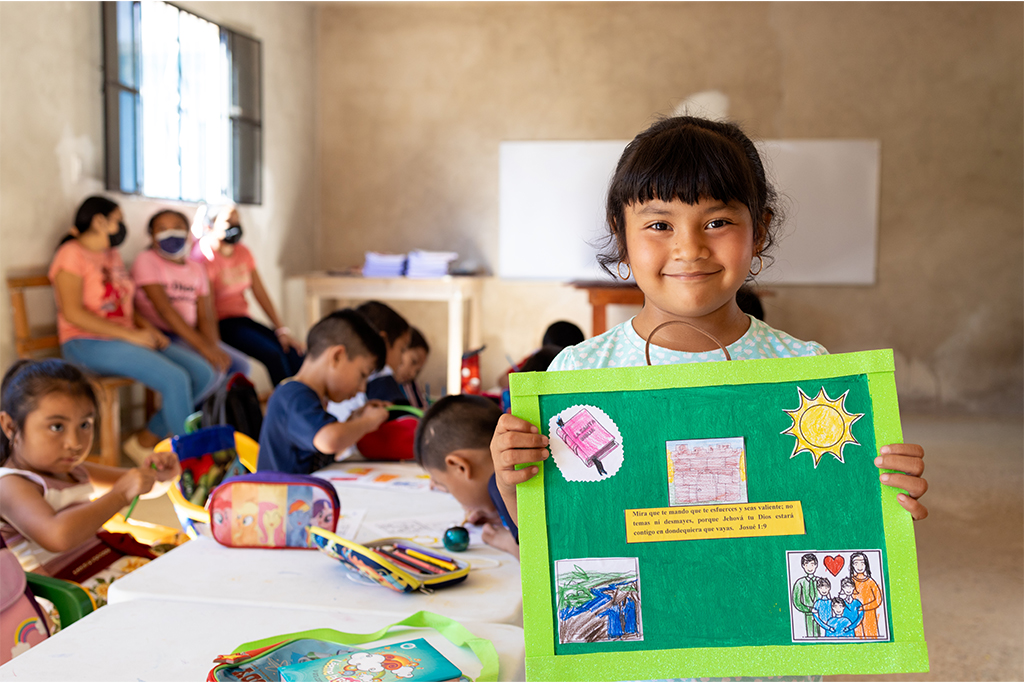
Firstly, your sponsorship removes the barriers preventing your sponsored child from accessing formal schooling or vocational training. This can include the provision of school uniforms, fees and resources.
“It was such a joy when her [Monica’s] school fees were paid for!” shares mum Devine from Uganda. “She was given all the materials she needed to attend – she’s never missed a day.”
You also enable your sponsored child to receive the benefits of the Compassion curriculum.
From aged five onwards, children attend a Compassion project run by their local church each week. Here they take part in curriculum classes that practically equip them to overcome poverty. Tailored to their age and local context and culture, the topics fall into four areas equipping children and young people to develop physically, spiritually, cognitively and emotionally. For example, nine-11-year-olds in Ecuador learn about the benefits of eating a healthy, balanced diet, whereas 19-22-year-olds in Rwanda are taught how to develop a simple business plan.
2. Healthcare that goes the distance
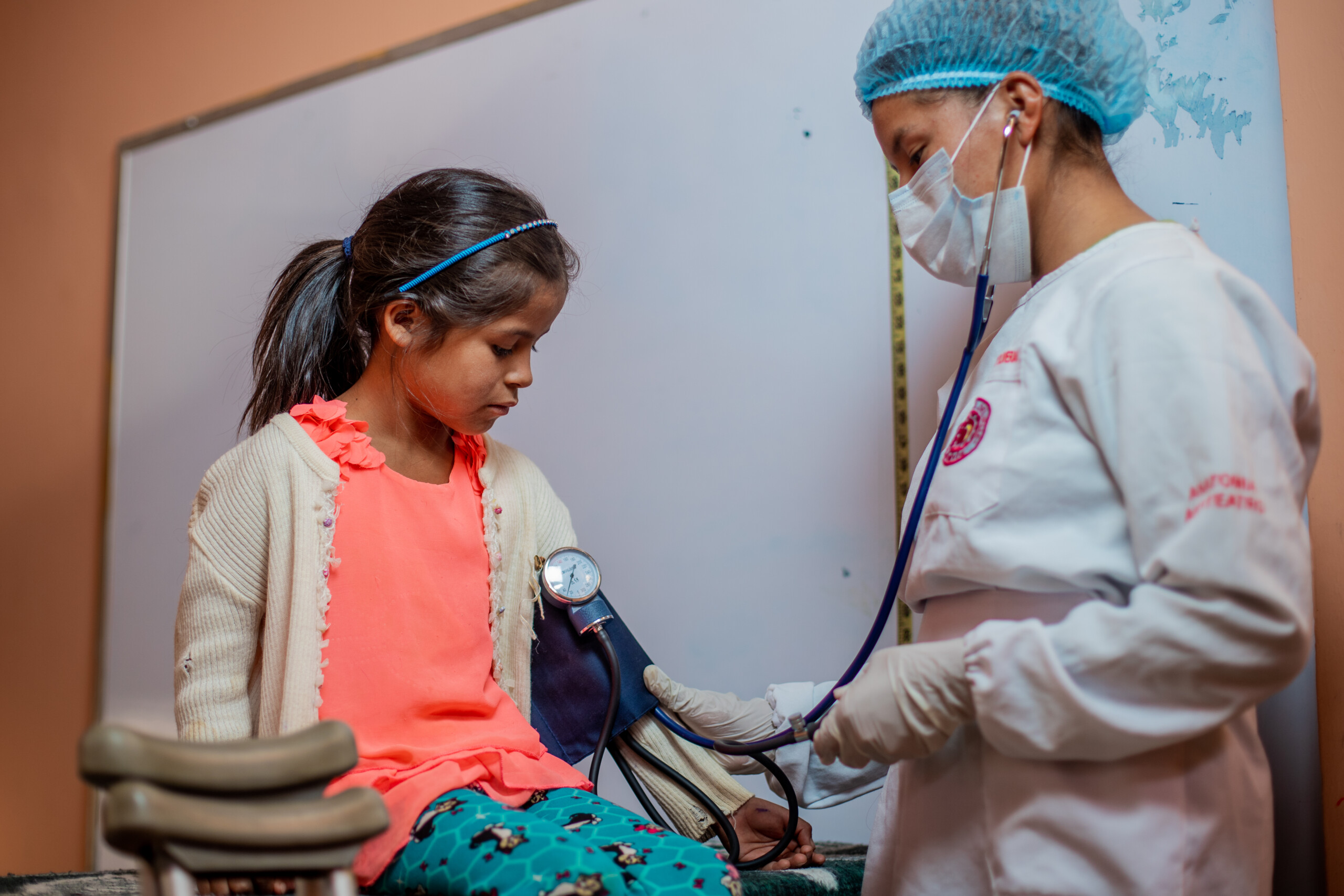
Thanks to your sponsorship, the child or young person you support receives regular medical check-ups from trained medical professionals. In contexts where access to healthcare is often limited and prohibitively expensive these appointments are crucial in diagnosing health issues early.
For eight-year-old Bintang, a routine medical check led to the diagnosis of a life-threatening heart condition. Thanks to funding from Compassion Health Interventions, she was able to receive the surgery she needed. As her father, Steven, shares: “I can’t believe there were people [Compassion sponsors] willing to help our daughter. It broke our hearts; because we had no idea about the surgery fee [and] we were thinking that Bintang probably wouldn’t be able to recover from her illness.”
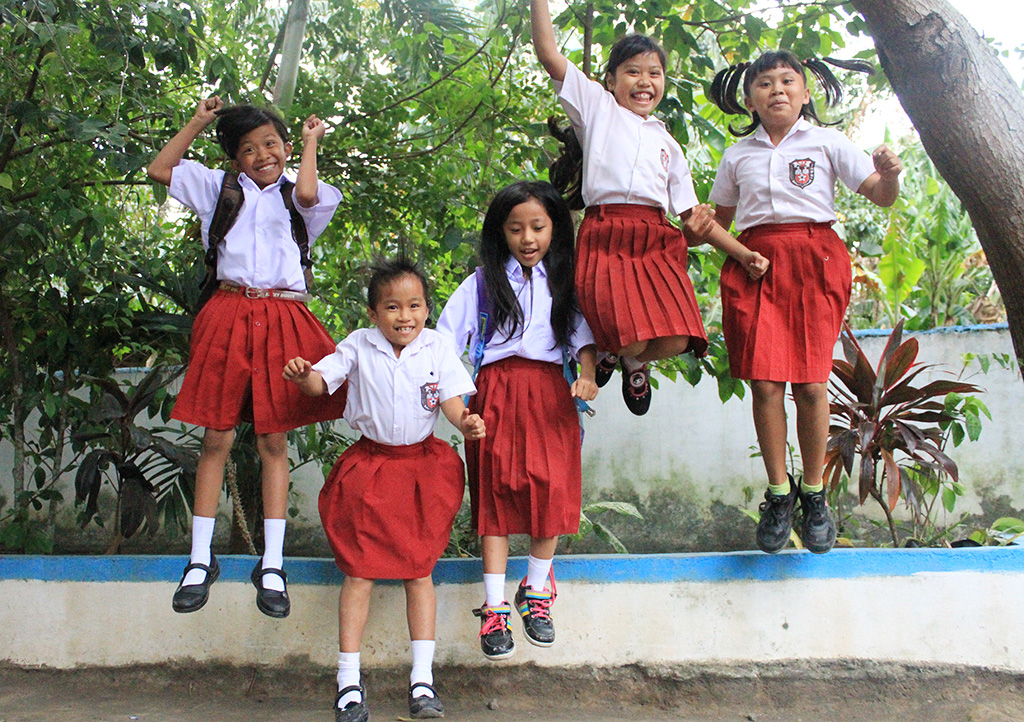
Bintang (far left) made a full recovery and is once again able to play with her friends at the Compassion project.
3. Protection against malnutrition
Malnutrition is one of the world’s leading causes of childhood deaths and it hinders brain and physical development. As part of the Compassion programme, warning signs of malnutrition are quickly identified and addressed with children being given emergency food supplements where needed.
The regular nutritional support children and young people receive is contextualised to their local project and individual situation, but typically children receive a nutritious, well-balanced meal every week when they attend the project day. This is often a real highlight!
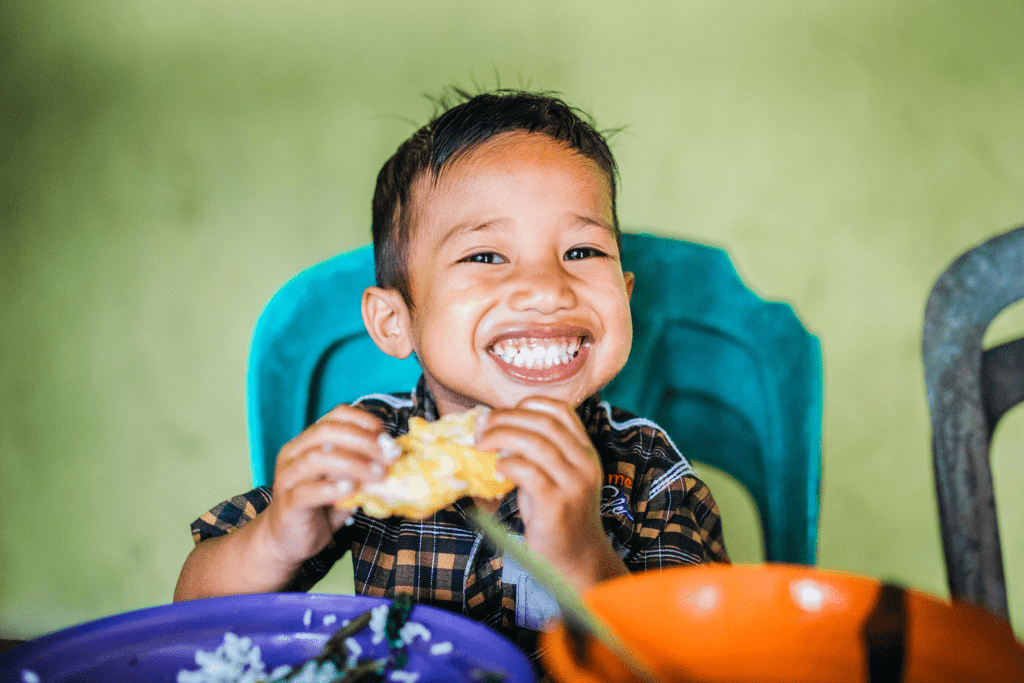
“I am very grateful to Compassion for helping my son to be free from malnutrition,” shares Melkianus from Indonesia. “Previously, maybe my older children were also malnourished, but I didn’t realise it. But when Juandin was registered with the Compassion programme, it opened my mind to ensure my children were healthy.”
4. A dedicated member of staff
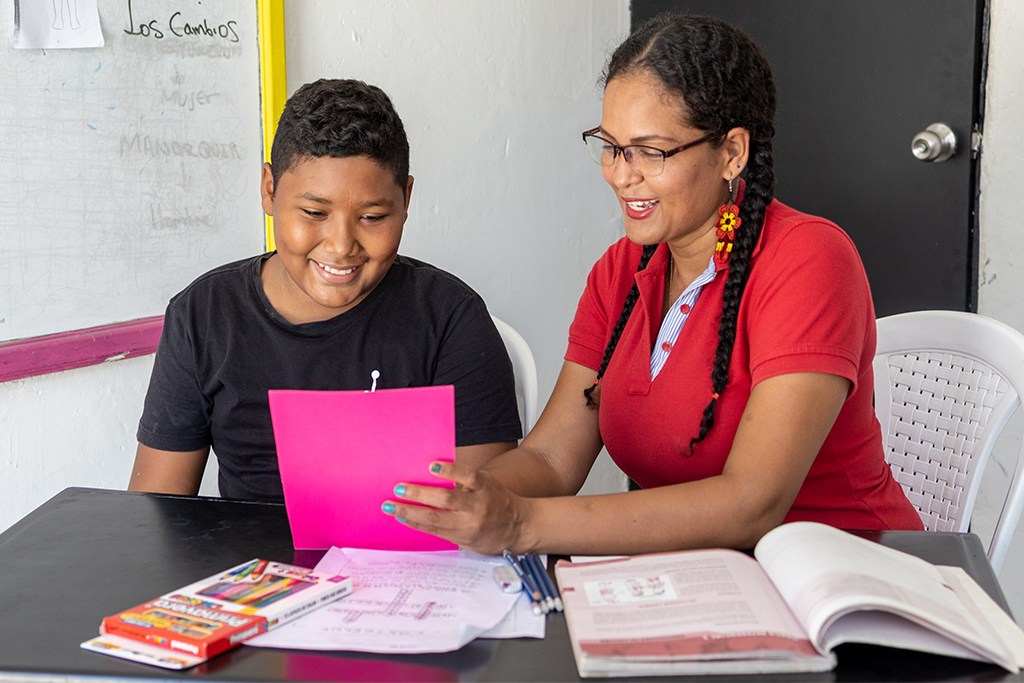
Did you know that every Compassion-supported child has a specially assigned tutor or project staff member who they know they can always go to for support and encouragement?
An amazing bunch of people, tutors show such sacrificial service in how they care for the children. Commonly teachers by profession, many of them could be earning significantly more money working in a private school but instead they’ve chosen to serve children in poverty.
“I believe that a tutor’s responsibility doesn’t finish after project hours,” says Xavier, a project tutor in Bangladesh. “I help them to understand their studies. They feel comfortable with me because I allow them to ask questions. All of us have a lot of fun with these kids. It is really great to see the smile and curiosity on the faces of these little angels.”
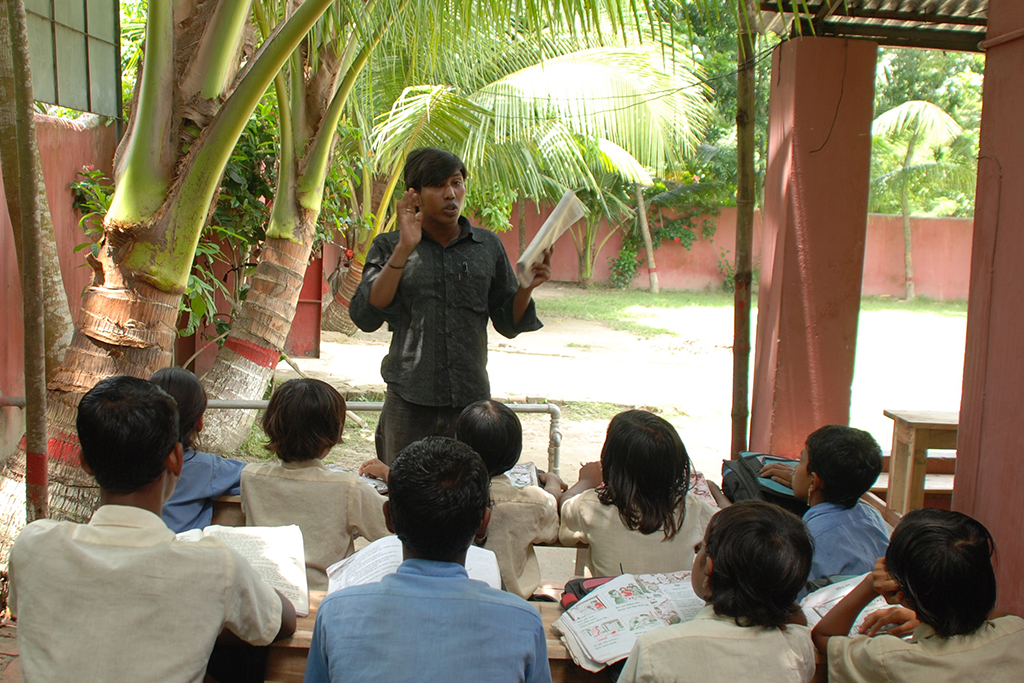
Children and young people have a trusted person who they can turn to whenever they need encouragement. They’re provided with discipleship and mentorship from faithful and mature Christian role models week in, week out. There is huge power in being known by name.
5. A voice and confidence the future will be different
A key characteristic of the Compassion sponsorship programme is that children and young people are given confidence in their own identity. At every stage of the programme, they’re encouraged to be active participants in their own development.
The Compassion curriculum builds character traits such as empathy, integrity and resilience to inspire agency in young people. Children are given the opportunities to dream, learn and grow where poverty would rob them of that potential.
22-year-old Milly from Uganda has a testimony of being empowered to find her own voice and being given the confidence and tools to shape her own future.
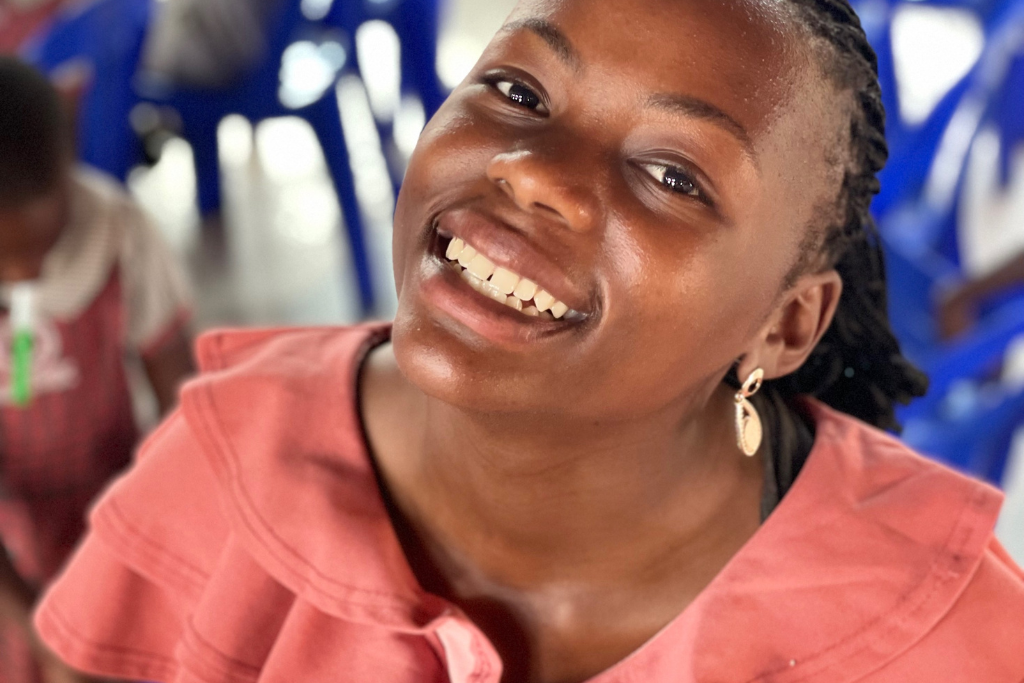
The Compassion curriculum builds character traits such as empathy, integrity and resilience to inspire agency in young people. Children are given the opportunities to dream, learn and grow where poverty would rob them of that potential.
22-year-old Milly from Uganda has a testimony of being empowered to find her own voice and being given the confidence and tools to shape her own future.
“I recently graduated with a bachelor’s degree of Biomedical Laboratory Technology” she shares. “I work doing diagnostics at the local hospital. But life was not always this way. At age seven, I was registered into the Compassion project. This was a very harsh time because so much was going on. My family was financially unstable, I was living with my mum, and I’m one of seven siblings. The last children were triplets! My dad was not around much, and I suffered from depression.
“If I didn’t have people around me like my mum and the uncles and aunts at the Compassion project, I would still be that shell.
“When I visited the project, I felt cared for, and people listened to me. I felt I had someone to share with. Little by little, I opened up and felt like I was cared for as an individual …
“At the project they identified my skills and talents. I found out I could speak! Before, I didn’t know I could talk in front of people, but they helped me learn how to speak well.
“At the age of around 10 or 11, Dennis (one of the staff) asked me what I wanted to be when I grew up, and I had no idea. He asked me to think more about it and write it down. I knew I was good at science, so initially I wanted to be a doctor as I realised you need to be innovative and can help a lot of people. But I didn’t get the medical course. So afterwards, I decided I wanted to focus on research.
“Now I work alongside doctors to help diagnose people who are sick. I thank God for who I am today.”
6. Care from the local church
The beauty of working with the local church means the church never truly closes. Even when our local church partners couldn’t meet in person due to Covid restrictions, they continued to serve children and families in their care through the delivery of food parcels, phone and video calls and socially distanced home visits to provide learning materials.
Our frontline church partners provide a trusted and consistent support network to children and families who are often facing immense challenges and instability. As well as individual home visits, they also hold special meetings for parents and caregivers where they run sessions on parenting skills, child protection, malaria awareness or good hygiene practice.
For Luisa, a mum in El Salvador who has suffered unthinkable abuse, the connection to the church which runs her son’s Compassion project has brought hope to her whole family.
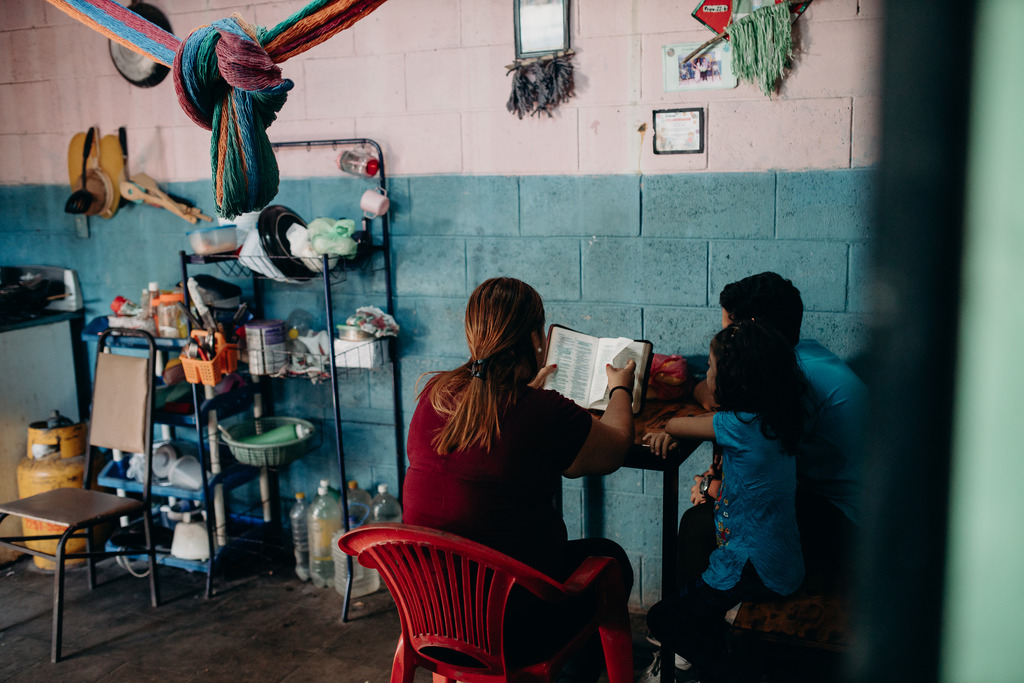
Through parenting classes run by Pastor Wendy from the project, Luisa came to recognise she was living in an abusive situation, and the church was able to help the family find a new, safe home.
“I felt like I had chains on my hands and my feet,” she reflects. “And when we moved out, I felt free.”
7. Opportunities to experience the love of God
At Compassion, we’re committed to serving children of any faiths or none, with children being enrolled into our projects based on their needs.
But because we partner exclusively with local churches children and their families have opportunities to experience the love of God. Through the local church, children and young people are offered a Bible and have the chance to hear the gospel and grow in their faith, if they chose to do so.
This can bring the transformative hope of Jesus to whole families.
“I don’t know what would have become of our lives and our father’s life if we had not been part of the centre,” explains 18-year-old Daniel from the Dominican Republic.
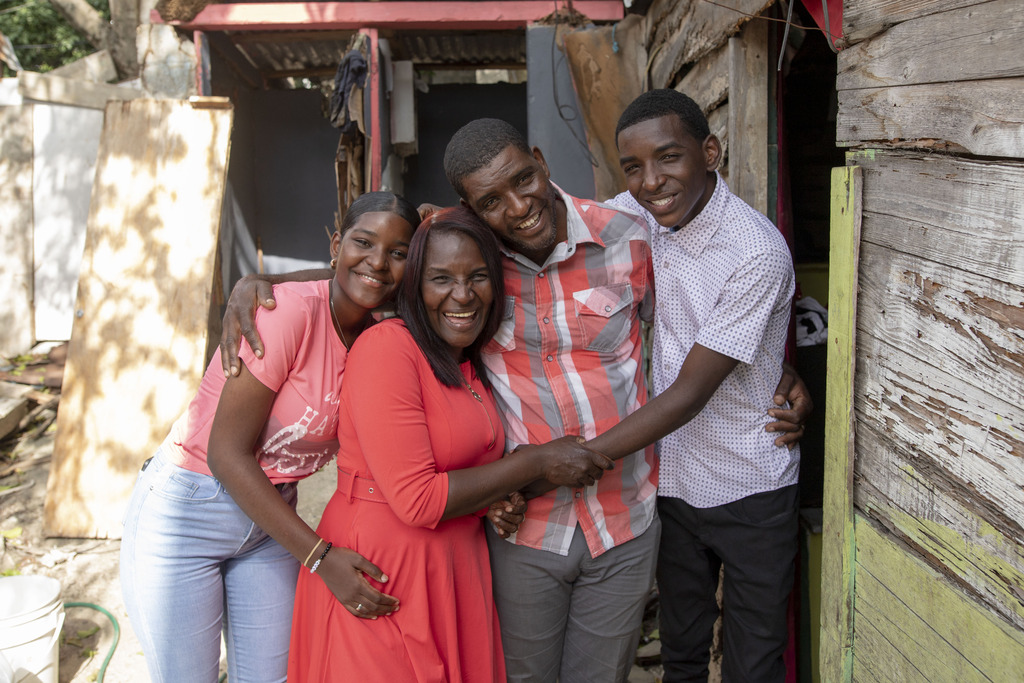
“I can remember one day, as he [dad] was walking into the backyard of the house, we followed him. I think we were about 10 years old when this happened, and what our eyes saw filled us with sadness: we realised that what our dad was going to the yard for was to use drugs.”
“But then we realised that he had accepted Jesus one Sunday when he came home smiling after going to church. His face was lit up! He looked so different, he looked so happy. He hugged us and told us the news and we realised that all these years of praying for my dad had not been in vain.”
“We are very grateful to God and the centre for all the help they have provided us throughout our lives,” adds Daniel’s twin sister Daniela. “But the greatest and most beautiful gift we have ever received has been Jesus and my dad.”
8. Equipped for the future
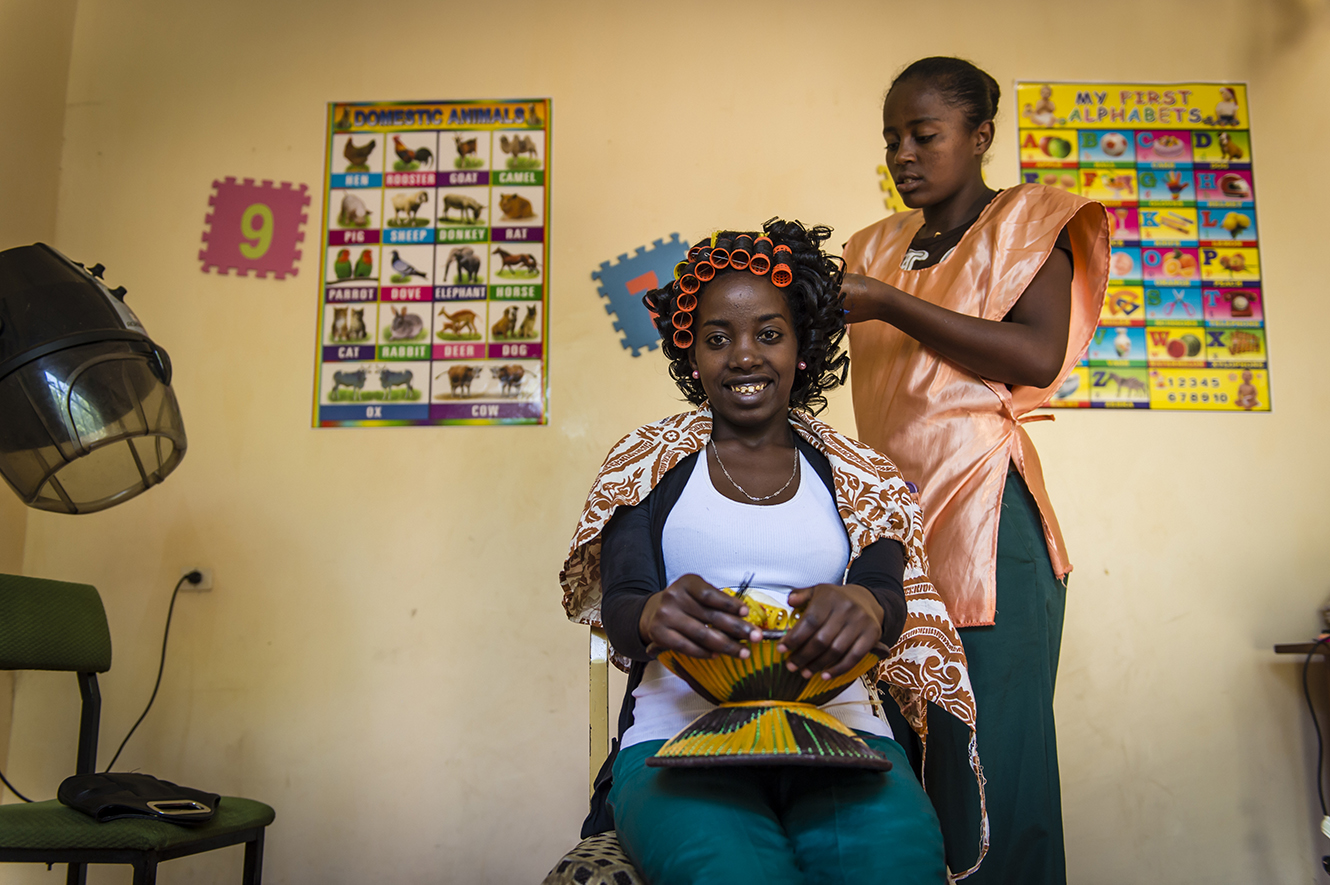
When your sponsored child reaches the age of 13, they begin to work through a guide called ‘My Plan for Tomorrow.’ With support from their tutor, young people are encouraged to identify and explore their skills and interests to help them set goals and make plans. Once a young person has identified their talents and interests they are also supported with vocational training opportunities, extra tutoring support or additional educational opportunities to help them make these dreams a reality.
Compassion graduate Sameson was able to set up his own woodworking business using the skills he learnt at his Compassion project. Sameson explains, “I am most grateful that through Compassion I studied woodworking. God sent Compassion to brighten my future.”
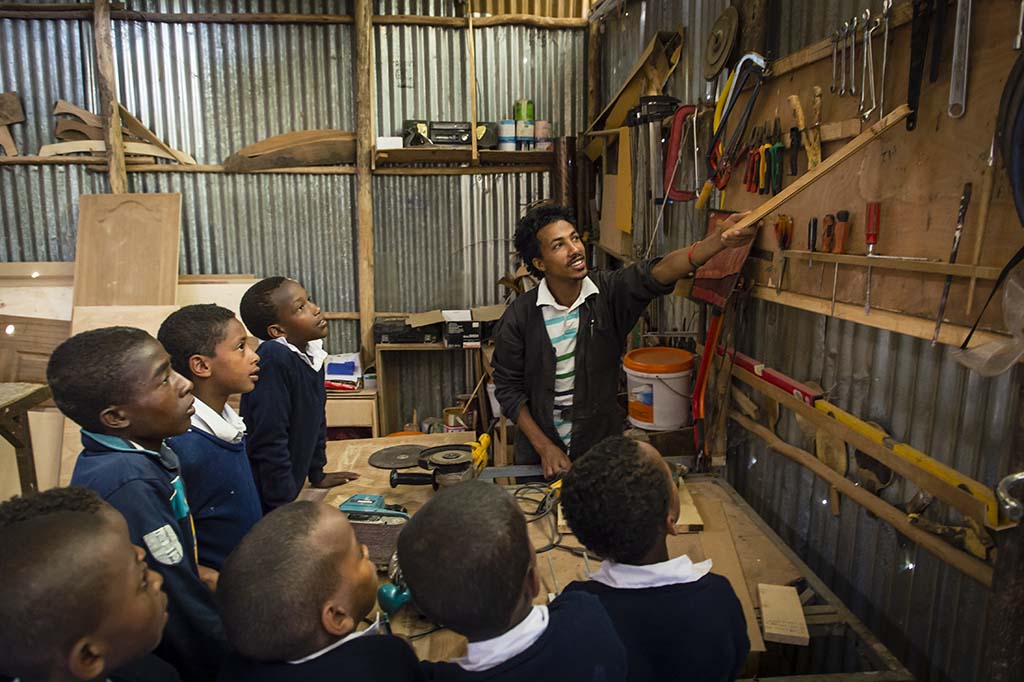
Today Sameson is giving back and teaching woodworking skills to the next generation of Compassion-supported children.
9. An incredible ripple effect
Because of the effectiveness of the programme, Compassion graduates often become change-makers bringing transformation to their families, communities or even wider nations. We hear testimony upon testimony from graduates about the ripple impacts of their sponsorship.
“I remember getting brand new backpacks, notebooks, pencils, and every school supply I needed to be at school year after year. I rejected the idea that I should inherit poverty and drop out school like most kids did in my community. I was encouraged to embrace a different future,” explains Aldo, a Compassion graduate from Honduras.
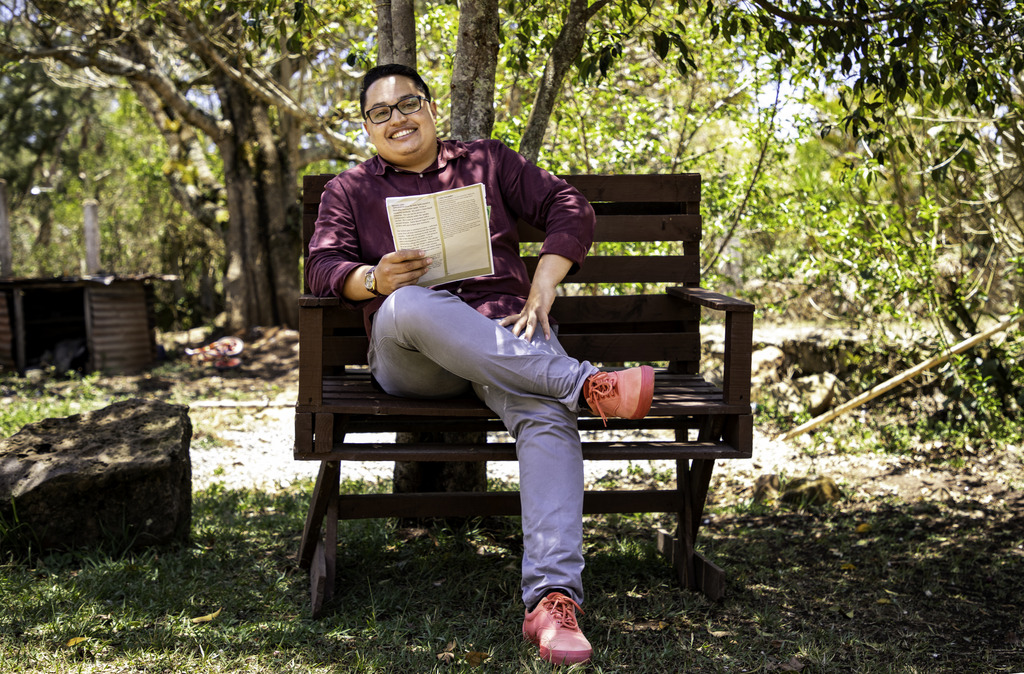
“No child is the same after spending years at the centre. There’s a visible before and after. My life was not only released from poverty in every thinkable way, but I was equipped to have a better future and I inherited a legacy of faith that bears fruit.”
Aldo was able to complete his education, graduating with an international business degree which today he uses as a Logistics Coordinator, organising the supply of medicines to every public hospital in Honduras.
Thank you
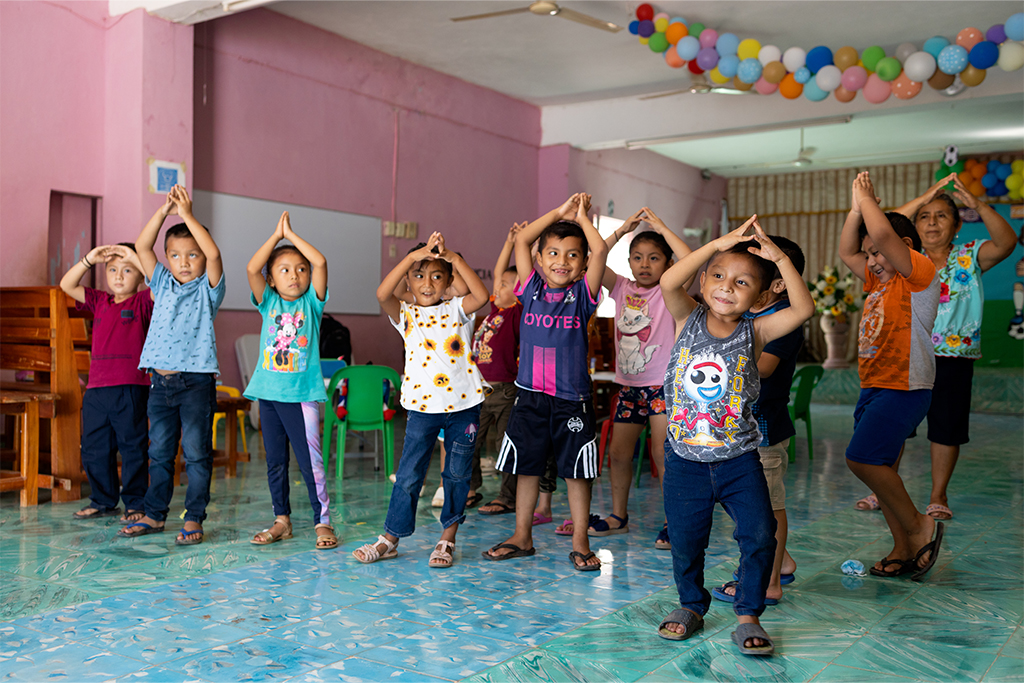
We’re so thankful for your continued care and support. Thank you for partnering with us.




